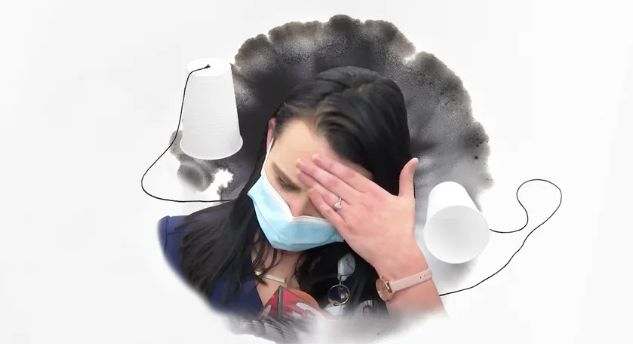A nurse fainted while receiving her Covid-19 vaccine and, that was just the beginning of the Tiffany Dover conspiracy story. Dr Karen Douglas research on conspiracy theories is cited in this Esquire piece.
When a nurse manager named Tiffany Dover got the shot in Chattanooga, Tennessee, it started out unremarkably. Her sleeve went up, the shot went in, and she went over to the local news cameras to take questions. She talked about how excited she was to get the vaccine, having worked in the hospital’s Covid unit. She paused. “I’ m sorry, I’ m feeling really dizzy,” she said, putting her hand on her forehead. Then, she fainted.’
Twenty minutes later, Dover was back in front of the camera. “I feel fine now,” she said. But thousands of people online had already made up their minds: Tiffany Dover was dead. Conspiracy theory expert Brandy Zadrozny has used this story as the starting point of a series of podcasts exploring how misinformation spreads and cites Dr Karen Douglas research.
‘Almost immediately after the news started to emerge about Covid-19, so did the conspiracy theories. Some people claimed that the virus was deliberately leaked from a laboratory in Wuhan. Others argued that 5G technology spread the virus. When vaccines became available, some people claimed that they contained tiny microchips designed to monitor the population.’ Douglas explains ‘Conspiracy theories—explanations for significant events and circumstances that implicate secret and malevolent groups with sinister goals—are common in times of crisis and unrest. But why do people believe in them?’
‘Research suggests that people are drawn to conspiracy theories when one or more psychological needs are frustrated. The first of these needs are epistemic, related to the need to know the truth and have clarity and certainty. The other needs are existential, which are related to the need to feel safe, secure, and to have some control over things that are happening around us, and social, which are related to the need to maintain high self-esteem and feel positive about the social groups that we belong to.’
Read the full piece here.

